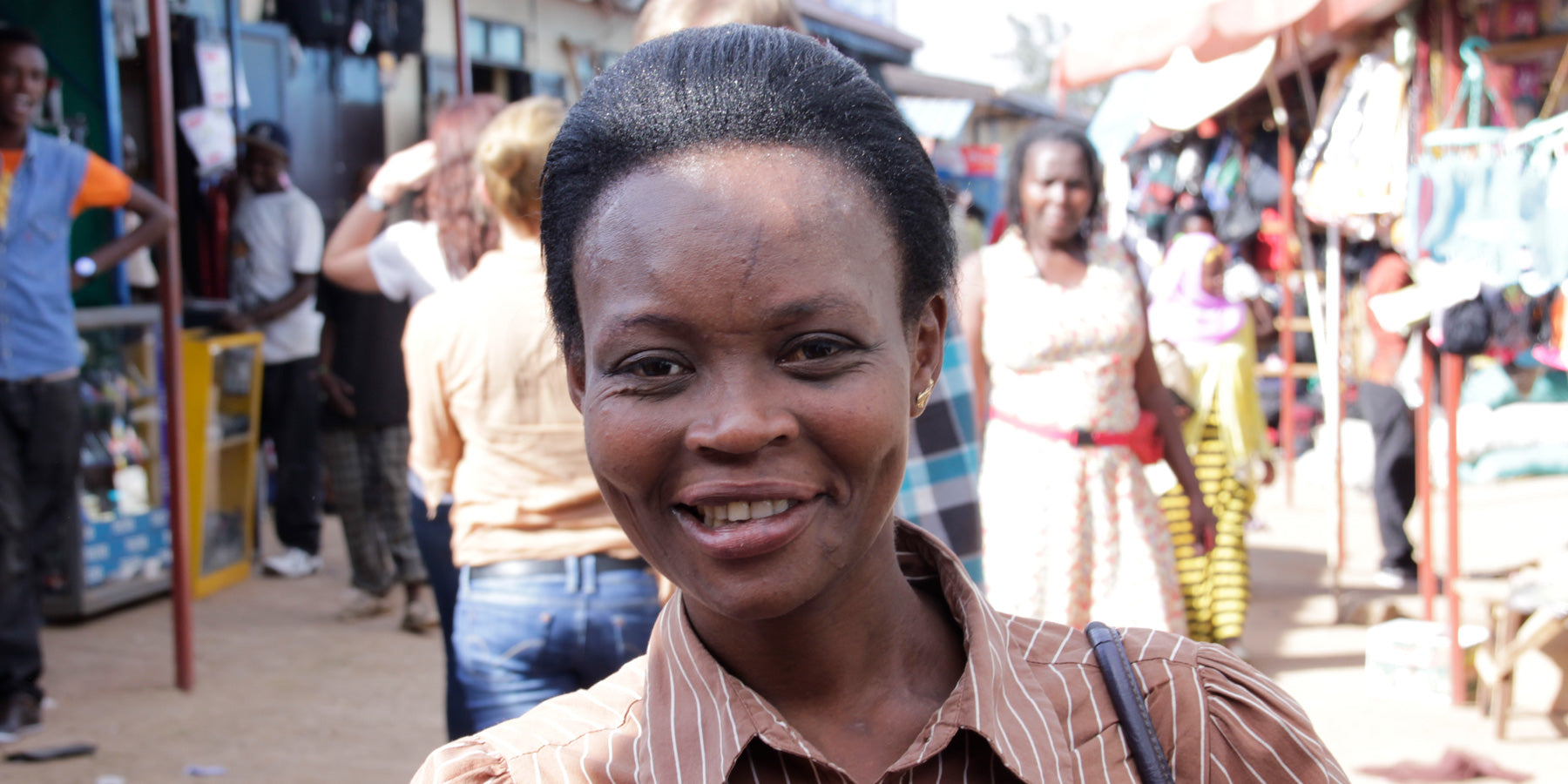As is so often the case, women do a large part of the work but receive little recognition and fair pay for it. Not to mention management positions on the coffee farms or washing stations. There is a clear separation between female workers and the men who do the work for them and bear responsibility. It is very often the case that men start and run a business and are then supported by the family. The women help to do the work, but the men retain the decision-making power . This is also the case in many family-run coffee businesses. Although women do the lion's share of the harvest and further processing, they have little control over the proceeds. Structurally, the interests of women in coffee are hardly taken into account.
International Women’s Promotion Associations in the Coffee Trade
Not least because the issue is receiving more and more international attention, there are now associations that are working to improve employment conditions and to increase women's participation. However, this also requires training and further information that goes beyond purely technical topics. Access to further training opportunities is crucial for the further development of women. This applies in general, of course, but even more so for women, who are denied the need for schooling in many countries.

Women in the coffee business - more rights, more education, more money
The work of the associations is instrumental in improving women's rights and in supporting them socially and economically. Access to credit, information and infrastructure helps to enable women to participate in decision-making processes. The International Trade Center (ITC), for example, supports the Easter African Fine Coffees Association (EAFCA) with development programs in 11 countries. Women in Coffee (IWCA) , a leading organization for the exchange of information and training of women, which operates mainly in Central America, also coordinates conferences specifically for women.
Another of the few active associations, the Café Femenino Foundation , initially supported poor communities in Peru. It now operates in around ten countries in Latin America. The Coffee Quality Institute (CQI) has made important developments in the past. CQI promotes leadership training for women by bringing together mentors from the USA with scholarship holders in Central and South America.
Of the women's associations in the coffee sector in Central America, the largest and best known are: the Alianza de Mujeres y Café de Costa Rica, Mujeres en Café de Guatemala and Flores del Café - Movimiento de Mujeres in Nicaragua. There are small national or regional women's groups in several other countries, including Mexico, Colombia, Peru, Kenya and India.

The role of women varies from region to region
The role of women in the coffee business varies greatly from country to country and even within each country. In Vietnam, for example, women make up about 50% of the country's traders, which is significantly higher than in other countries. In Brazil, which produces a third of the world's coffee, there is a very low percentage of women in field work and harvesting due to the high level of mechanized agriculture. Mexico is an example of significant variation in the role of women in coffee from one region to another.

Lots of work, little money & no say
However, despite many efforts, a study by the International Trade Forum showed that while women in the coffee business continue to do most of the work on a coffee farm, including harvesting and processing, they are most likely not involved in the business end of the supply chain, such as when it comes to certification, trading, marketing and transportation. The result is that while women in the coffee business do more work, men have greater control over business decisions and finances. Therefore, men typically hold a larger share or the majority of the profits.
A 2015 study by the Specialty Coffee Association of America (SCAA) found that women in the coffee business own between 3% and a maximum of 20% of the land in developing countries . It is not uncommon for women to be legally prohibited from acquiring property.
And even where it is permitted, women face restrictions. For example, women often have to be married or have their husband's permission to buy land. In addition, women tend to own smaller plots of land than men or land of lower quality, not least because they have less access to financial resources.
Women are also often less involved in health care, education, training and business networks . All of this also affects the quality and quantity of the coffee beans produced.

Poorly supplied, poorly connected, poorly protected
A 2018 study of East African coffee-producing countries found an average wage gap of 39% between men and women. Women are often unable to join cooperatives to market their coffee because they do not own land or cannot afford the fees. This in turn means fewer women reach positions of power to make policy changes.
And the issue of sexual assault does not stop at coffee farms. It is difficult to collect data on this topic because many women do not report such incidents, partly out of fear of reprisals. However, from stories and small studies in various regions, it can be concluded that sexual assault is a particularly big problem for migrant workers.
How are things going for women in the importing countries?
And when it comes to refining the green coffee in the importing countries, roasting and brewing the coffee, male colleagues still predominate. This is despite the fact that women's rights and gender equality are much more advanced in the industrialized countries than in the growing countries. On the other hand, it is also unfortunately a fact in the industrialized countries that women earn less for the same work . The coffee news site Perfect Daily Grind reports that articles on the subject of roasting have the largest gender gap in readership and that no woman has yet won the World Coffee Roasting Championships (WCRC) .
Hard work & lack of role models
The Sidamo growing region in Yemen covers a large area in the fertile highlands south of Lake Awasa. It consists of over 20 different administrative areas , called "woredas", with different microclimates and altitudes. Accordingly, there is a wide range of varieties and cup profiles that are labeled as Sidamo. The Sidamo region is one of three trademarked coffee regions in Ethiopia, along with Harrar and Yirgacheffe. They are known for their perfect climatic conditions for coffee, in the form of altitudes between 1,500 and 2,200 meters above sea level, abundant rainfall, optimal temperature and nutrient-rich soils.
Around 60% of the region's coffee is washed. But some special sun-dried coffees also come from Sidamo. There are more than 50 cooperatives here, as well as many private coffee farmers who can bring their coffee to over 200 washing stations. Sidamo is a respected growing region from which very high-quality coffee can come. However, due to the immense quantity, there are also large differences in quality. The special qualities have crisp acidity with refined sweetness, floral and citrus notes and an elegant aftertaste.
She's the roaster - Women at the roaster
In response, the Roasters Guild Event Committee, with the help of the Specialty Coffee Association, founded "She's The Roaster" . This movement and the associated hashtag (#shestheroaster) aim to promote women in the coffee industry and encourage them to become professional coffee roasters. It seems to be having some success, as more and more women are taking part in the WCRC . In the barista scene, you still see significantly more boys than girls behind the coffee machine, but slowly but surely there are more female baristas who are also taking part in corresponding competitions.

Why should we promote gender equality?
Of course, we should promote gender equality for its own sake. Women deserve the same opportunities as men. But there are many other, concrete reasons for this. First, we could drink even more, even better coffee. With access to land, finance and education, women could increase agricultural production by up to 30% and thus contribute to even more good, carefully processed coffee.
With newly acquired influence and rights, women are more motivated to do their work even more conscientiously. Because those who know what certain measures are good for (namely improving the harvest and coffee quality) and who also benefit from them themselves (higher income) are also more motivated to take on the corresponding additional effort.
Access to technology, education and training also improves the quality of cultivation. There are already case studies showing that women coffee farmers have significantly improved their harvest after having access to the same support as their male colleagues.
Second, providing money and decision-making power to women in developing areas, whether in the coffee industry or elsewhere, has been shown to promote overall economic growth in rural areas. Compared to men, women are more likely to invest their earnings in things like nutrition, school fees, health care, and household improvements .
By supporting women and promoting equality, not only do women themselves benefit, but entire regions and countries and ultimately consumers too. If we want to satisfy the growing demand for ever better quality coffee, we have to invest in support and pay reasonable prices.


